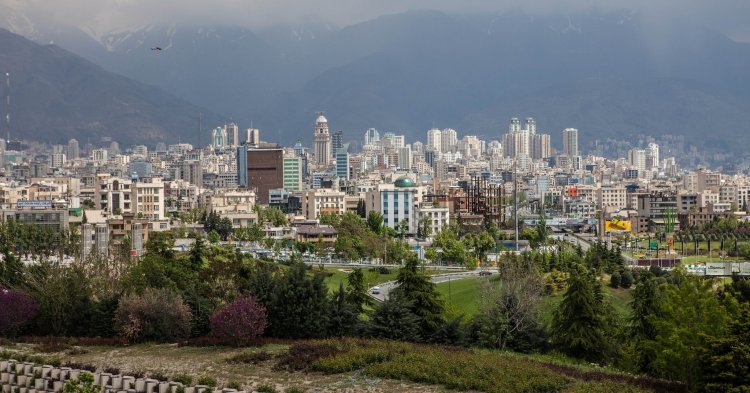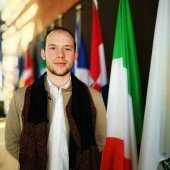This decision has infuriated the Iranian government: in a statement on Twitter, the Iranian foreign ministry has accused France, Denmark and the Netherlands of supporting the MEK, the People’s Mojahedin Organization of Iran. According to the Iranian ministry, the MEK are responsible for the death of 12,000 Iranians and contributed to the war crimes of Saddam Hussein against the Kurdish-Iraqis. It was precisely at a gathering of the MEK that the attack in Paris was foiled, where a man and a woman of Iranian origin were found in possession of 500 grams of explosives.
The leader of the Islamic Republic of Iran, Ayatollah Ali Khamenei, spoke to a number of Qom residents who travelled to Tehran and said that “sanctions will put pressure on the country and the people”. He further added that “the people and the authorities can make these sanctions one hundred per cent to the benefit of the nation”. Iranian officials responded that Iran is revising its “information, security and law enforcement cooperation with European countries”.
Iran’s presence in the Middle East scenario
By virtue of its richness in raw materials, Iran is a country that has the potential to grow rapidly in terms of geopolitical and economic influence. In fact, according to a recent study by BP, Iran is the world’s richest country in natural gas reserves (followed by Russia and Qatar), and the fourth in crude oil reserves, in addition to which it has low production costs, which is not an insignificant fact in a context of the diminishing price of crude oil. [1]
Iran consequently has important economic relations with European countries such as Germany and Italy. For instance, Eni (the principal Italian oil company) signed a Memorandum of Understanding with the National Iranian Oil Company (Nioc) for carrying out feasibility studies in the Darquain and in Kish fields of Iran. The Darquain oil field is well known to Eni – it is located between the cities of Khorramshahr and Ahvaz, in the south-western province of Khuzestan, where Eni has been working for years. It is estimated that the reserves of the field are approximately 5 billion barrels, of which one-fifth are extractable. Darquain currently produces about 160,000 barrels a day and it is expected that the daily production capacity will be increased by 50,000 barrels. [2]
In addition to that, Iran is present in most situations of tension in the area and it behaves as a regional power which aims at expanding its influence in neighbouring countries: that is why its growing geopolitical and military importance worries its rivals Egypt, Saudi Arabia and Israel. As a matter of a fact, Iran has an army of almost one million active units which is operating in northern Iraq and in Syria. Further, in Lebanon Hezbollah also has strong links to the Iranian regime, not to mention the ongoing conflict in Yemen in where Iran is playing an important role.
Religious ties constitute an important channel through which Iranian diplomacy exerts sway on its neighbourhood – Iranian diplomatic efforts are also buttressed and complemented by highlighting historical as well as ethnic ties. In this regard, present Minister of Foreign Affairs Mohammad Javad Zarif emphasised that Iran is seeking international prestige and recognition. Iran is conscious of its past, of its role in history, and perhaps finds it problematic to accept the fact of being a weak actor whose political behaviour is subject to the actions of external powers.
European diplomacy between a rock and a hard place
A fronte praecipitium, a tergo lupi: a precipice in front, wolves behind, as the Romans used to say. While in Egypt, US Secretary of State Mike Pompeo said that sanctions against Iran will intensify, yet the EU remains like an earthen vessel thrown amidst iron jars. Questioning EU’s position with Iran entails shedding light on the extent to which the EU is a fully-fledged global political actor capable of speaking with a single voice. As security is a concern of primary importance for each country, the European diplomacy should not refrain from engaging in a dialogue where Iran’s security concerns are not held aloof and which, at the same time, affects European economic interests.
It is worth mentioning that the lifting of sanctions in line with the Joint Comprehensive Plan of Action (JCPOA) has facilitated trade and economic relations to the extent that only in 2016 - the first fiscal year after the JCPOA implementation - EU imports from Iran reached €5.5 billion, an increase of 344.8%, while EU exports amounted to €8.2 billion, an increase of 27.8%. The following year, EU imports from Iran went beyond €10.1 billion and exports to Iran peaked at €10.8 billion. [3]. Diplomacy can be complex, multifaceted and controversial. At any rate, the EU needs to find a delicate balance between Atlantic solidarity and deploying an autonomous foreign policy capable of mediating with countries such as Iran.


Follow the comments: |
|
